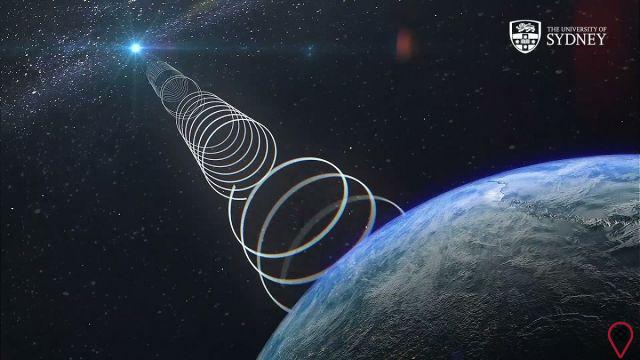Metaphysics passed over more than 2 thousand years from “first philosophy” in Aristotle to a “meaningless discourse” for positivists in the 20th century, but soon after this discredit was softened with Popper, above all, according to Abbagnano (2007) . Even so, the harsh criticism carried out by the Vienna Circle left to the present moment the impression of an activity similar to quackery. Perhaps, in the middle of the 21st century, in the current moment of crisis in the materialist paradigm, this discipline can be the salvation of science. To understand a little more about it, it is important to go back in time, in the history of philosophy.

After the elaboration of a conception of the world divided between reality (ideas) and illusion (opinions) in Plato, metaphysics is approached by Aristotle as the “science of first principles and causes”, or “first philosophy”, which was the portrait of the quest of the philosopher of Stagira for a universal knowledge, necessary and applicable to any knowledge that comes to be called “science”. This science sought is at the same time a "theology", in the sense that, when dealing with the first principles, it is faced with the "immobile engine", the divinity, as an object of study, and also an "ontology", being the study of “being as being” and not as some particular way of being (for example, the mobile being, object of physics, or the living being, object of biology).
It is true that the term “metaphysics”, as considered by tradition, emerged with Andronicus of Rhodes, when organizing the writings of Plato's disciple, and, finding no classification for some, he coined the term “tá metátá physiká”, which means “those after physics”, by placing them on a shelf next to the texts on physics. Whether by this librarianship criterion or not, metaphysics continued to deal with themes that, in a way, extrapolate the domain of physical things in its speculation, and this seems to have cost dearly for a moment, in terms of the impression that this discipline seems to have taken with it after the harsh criticisms of Hume, and then of Carnap and the logical positivists. The latter said, above all when referring to Heidegger: “metaphysicians are nothing more than musicians without musical capacity”.

The intention of this movement was the elimination of metaphysics through a thorough analysis of language with the resources of logic, and the intended result was to separate the “wheat from the chaff”, that is, to differentiate between meaningful and meaningless utterances. Thus, phrases such as "The soul is eternal" should be dropped because the subject to whom the quality of eternity is attributed cannot ordinarily be verified. It so happens that, later on, a very elegant gentleman named Karl Popper examined the history of science and realized that at various times the latter only made progress on the basis of intuitions and conjectures about reality that could not be verified in experience until then. . For example: for a long time, since the appropriation of the term “atom” with Democritus and his disciples as being the elementary principle of nature, it was not possible to find anything that could corroborate this intuition about reality. Only later, from what became known as the “Brownian motion” of the pollen grain, did it become evident that this was a corroboration of the existence of atoms. Popper called such more general guiding intuitions “metaphysical programs” and explained that they have always existed over time and have directly influenced scientific research, functioning as a road map to scientific discovery.
Not forgetting to consider Kuhn's remarkable work, although he differed from Popper in the conception of advancement in science, above all, he asserted that science progresses by breaking paradigms. This notion can be useful in clarifying the importance of metaphysics. Now, it seems to be almost a consensus today that Kuhn is right on the issue of the development of science: theories develop to a certain point where they no longer hold up and need to be replaced by a new paradigm. On the other hand, Popper is right about the importance of “metaphysical programs” as a real influence on scientific theories.

Even though it is not something that Popper would defend, it is possible to infer that a materialist view is a major obstacle to the development of new theories about the world. After the advances in quantum mechanics, the comfortable planetary conception of the atom as an indivisible particle and the security provided by Newtonian physics fell apart. In fact, the buildings (thank God) do not fall because of this theory, but it is no longer sufficient to understand the complex structure of reality. In this sense, the possibility of influence of the observer in the experimental tests began to be considered and with that an avalanche of new theories and techniques elaborated from the faith in the influence of thoughts on matter began its movement.
It is understandable that in some cases there has been exaggeration as the result of an excitement for the opening of a new, less mechanistic and more holistic worldview, however the use of the term “metaphysics” must always be accompanied by an examination of the stigma it entails. carried in the 20th century and, therefore, parsimony is recommended in the sense that the use of “metaphysical knowledge” should not be used as a substitute for our lack of knowledge. In the same sense, the use of the term “quantum” seems to have proliferated and, therefore, it is advisable to be careful in its use, at least a care accompanied by the examination of some of the following questions: do I know the origin of the controversy that resulted in the formulation of a so-called “quanta theory”? Do I minimally understand the problems that arose from the experiments carried out?

You might also like:
- Being, Spirit and Whole: three hermetically united concepts
- Metaphysics of crisis signals: Find the best solution
- Aura and chakra reading with metaphysical counseling
Of course, words are in public use and change their meaning over time, but their use, to have the most effect and give more consistency to knowledge, must be preceded by minimal research and reflection. With these precautions, it becomes more propitious for metaphysics to fully recover from its stigma and once again resume its place of “first philosophy”, or, who knows, of “science of sciences” in a still distant future.

























